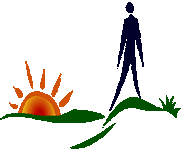St. Vincent's University Hospital
Pain Management Program: A Patient's Guide

WELCOME
The Multidisciplinary team of St. Vincent Hospital Pain Programme would like to welcome you. The Pain Team is made up of Doctor (Anaesthetist), Psychologist, Co-ordinator, Physiotherapist, Occupational Therapist and Medical Social Worker. Together as a team we hope to help you with your pain.
THE PROGRAMME
The Pain Management Programme is an Outpatient Programme – this means patients attend for the day only and go home at night. Patients from outside Dublin are encouraged to stay with friends or in Bed and Breakfast Accommodation near the hospital for the duration. Patients are responsible for organising their own accommodation. The Programme runs for three weeks and patients attend from 9:15am – 3:00pm each day. Registration is at 9:15 on the first day in St. Anthony’s Rehabilitation Centre.
AIM
We aim to teach you how to manage your pain. You will become fitter and better able to do things. Your quality of life will improve. We do not offer a cure or guarantee to relieve your pain but we do hope to teach you coping skills to deal with your pain.
CONTENT
Each day there are talks, lectures, a fitness programme, an occupational therapy programme and relaxation classes.
CONFIDENTIALITY
Confidentiality within the group is essential and this also applies to the pain team.
RULES
The programme is hard and demands commitment. If you are unable for it, you will be discharged. If you miss days, keep turning up late or becoming disruptive, you will be asked to leave. Everybody is asked to abstain from alcohol for the duration of the programme plus the following twelve months. Patients are asked to come back for follow up with Dr. O’Keeffe and other team members after they leave the programme. All patients must be fully assessed by the team before the programme.
We require a family member or friend to attend for a half day during the programme. Check your timetables on the first day for the date. If you have any difficulties do not hesitate to ask Dr. O’Keeffe. Please bring any medications you are taking with you.
LOCKERS AND SHOWERS
Lockers are available for use to store personal items. Locker keys will be given out on Day 1 of the programme. Each person is responsible for returning his or her locker key at the end of the programme. There are also showers available for your use if you wish to freshen up after physiotherapy. You may shower during lunchtime (12.30 – 1.30). Each patient is responsible for bringing their own towels, toiletries and clothes change and ensuring they are ready in time for the 1.30pm lecture.
Please bring a pen and paper with you each day to take notes. Pocket files are provided for your convenience.
CLOTHES
Please wear comfortable clothes and bring a tracksuit with you. Good supportive shoes / runners / trainers are required also. Sports socks and sweatshirts are useful.
BREAKS
Tea and coffee will be provided each day in St. Anthony’s Coffer Shop at 9.00am, 10.45am and 12.45pm. Lunch is at 12.30 – 1.30pm.
Lunch is available at the following places:
St. Vincent’s Private Coffee Shop, St Vincent’s Public Hospital,
The Merrion Centre Cafe and
The Merrion Inn, Merrion Road.
INFORMATION ON TIMETABLE
Sample Timetable
Time Mon Tue Wed Thur Fri
9.15-9.45
Relax Relax Relax Relax Relax
9.45-10.45
Life–skills Lecture Life–skills Lecture Lecture
11.00–12.30 Physio Physio Physio Physio Physio
12.30–1.30 Lunch Lunch Lunch Lunch Lunch
1.30-2.30 Group Session Lecture Group Session Lecture Group
2.30–4.00
OT OT OT OT OT
OT: =Occupational Therapy
Physio:= Physiotherapy
Relax:=Relaxation
LIFE – SKILLS
The aim of life-skills is to teach people the skills they need for self-development such as communication and assertiveness training, anger and stress management, self -esteem and confidence building.
RELAXATION THERAPY
The aim of the relaxation therapy is to help people decrease muscle tension, reduce stress levels and increase body awareness and mood. This is achieved by teaching deep breathing and a number of other techniques – progressive muscular, autogenic, guided imagery and Benson method of relaxation.
PHYSIOTHERAPY
The aim of physiotherapy is to build up group members’ individual fitness and mobility through a number of aerobic exercises and stretching routines designed for people with chronic pain.
OCCUPATIONAL THERAPY
The aim of the occupational therapy is to help people devise ways of overcoming and coping with difficulties in daily living arising from chronic pain. It helps people function better and improve various abilities. A number of different activities are taught e.g. Computers, gardening, lifting, etc. to practice skills.
GROUP DISCUSSION
The aim of these discussion groups is to help people talk about and reflect on their experiences. It is often a great relief to talk to other people with pain and discuss any difficulties they may encounter. The group also gets an opportunity to discuss future plans and goals.
EDUCATION
The aim of these lectures given by team members is to educate people about the nature of their pain. Practical coping skills are also taught to help people.
COUNSELLING
The programme addresses group problems such as depression, anxiety, and family issues. People will have a chance to discuss these issues within the group.